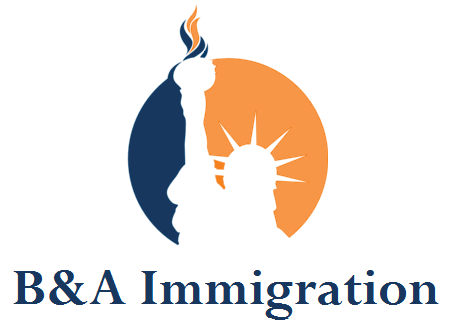Waivers of Inadmissibility
Waivers of Inadmissibility concern those applying for a U.S. visa that are inadmissible as a result of arrests, cautions, criminal convictions or prior US immigration violations.
If you have been arrested, cautioned, convicted, have a criminal record, or previously violated the U.S. immigration laws, please contact this office to schedule a free consultation.
If a U.S. consular officer has determined that you are ineligible for an immigrant visa or nonimmigrant visa because you are inadmissible to the United States, then you may be able to file an application for a waiver of inadmissibility.
Non-immigrant Visa Eligibility for Waiver
- The following is considered:
- The risk of harm to society if a waiver applicant is admitted to the U.S.
- The seriousness of an applicant’s prior criminal or immigration violations, if any, and
- The nature of the applicant’s reason for wishing to enter the U.S.
I-601 Immigrant Visa Eligibility for Waiver
- The person has a “Qualified Relative”; &
- The qualifying relative will suffer Extreme Hardship.
Qualified Relative
- For a person who is inadmissible for prior unlawful presence or misrepresentation a qualifying relative is a citizen or lawful resident spouse or parent;
- For a person inadmissible for criminal history a qualifying relative is a citizen or lawful resident spouse, parent, son, or daughter.
- A US citizen fiancé(e) may also be a qualifying relative.
Extreme Hardship Factors
- HEALTH – A physical or mental condition that you need continual treatment for;
- FINANCIAL – Future employability and financial losses if the waiver of inadmissibility is not approved;
- PERSONAL – Hardships that your close relatives will suffer if the waiver of inadmissibility is not approved;
- EDUCATION – If you cannot continue with your education goals and the impact it would have on your earnings;
- SPECIAL FACTORS–Cultural, language, religious, and ethnic issues.
I-212 Waiver for Reapplication for Admission after a prior deportation order
You can apply to return to the U.S. after a deportation. If you have been deported you normally will be barred from being re-admitted to the U.S. The amount of time you will be barred depends on why you were deported. It can be a bar for 5, 10 or 20 years. During the time you are barred from re-entering you can file an I-212 Waiver for Reapplication. This is often done along with an I-601 waiver application. An I-212 waiver alone does not require a qualifying relative or a showing of extreme hardship, unlike an I-601 waiver. Factors considered:
- Why you were removed
- How long ago you were removed
- Length of residence in the U.S. (if residence was legal
- Your moral character
- Your respect for law and order
- Evidence of reformation and rehabilitation
- Your family responsibilities in the United States
- Inadmissibility to the U.S. under other sections of law
- Hardship involved to you and others
- The need for your work (employment) in the U.S.
Provisional Unlawful Presence Waivers
Certain immigrant visa applicants who are spouses, children and parents of U.S. citizens (immediate relatives) can apply for provisional unlawful presence waivers before they leave the United States. The provisional unlawful presence waiver process allows individuals, who only need a waiver of inadmissibility for unlawful presence, to apply for a waiver in the United States and before they depart for their immigrant visa interviews at a U.S. embassy or consulate abroad.
The new process is expected to shorten the time U.S. citizens are separated from their immediate relatives while those family members are obtaining immigrant visas to become green card holders of the United States.

